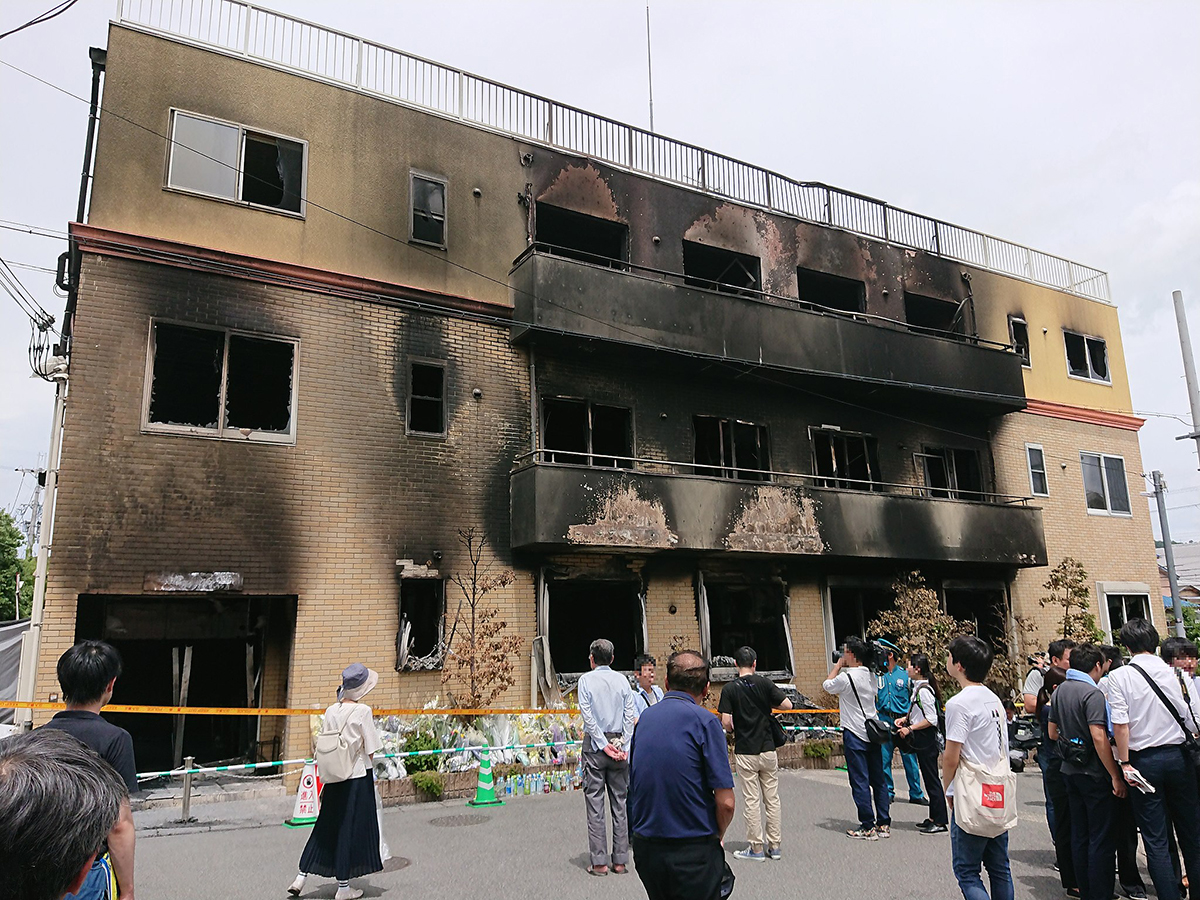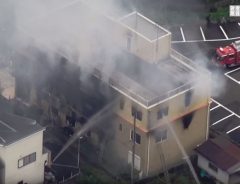
Source: L26 [CC BY-SA 4.0 (https://creativecommons.org/licenses/by-sa/4.0)]
12 Kyoto Media Outlets Request Release of Names of 25 Kyoto Animation Arson Victims
- Tags:
- arson / arson-homicide / Kyoto Animation / Kyoto Animation arson attack / mass media / media / media ethics
Related Article
-

grape Japan and JAPAN Forward In Content Sharing Partnership
-

Six Months Since the KyoAni Arson Tragedy
-

Recovering Kyoto Animation arsonist arrested; deemed fit enough to confine and interrogate
-

New media site in “Easy Japanese” designed to be easier for foreign residents to understand
-

Japanese singer AI and SNS marketing firm FinT launch Instagram media Take Action for Peace
-

Kyoto Animation Announces Its Official Bank Account to Accept Donations


On July 18th, the worst confirmed arson incident in Japan's history devastated the Kyoto Animation's Studio One Building in the Fushimi Ward of Kyoto, claiming what would eventually be 35 lives of employees and injuring scores of others.
In the days following the incident, the names of 10 of the victims has been released to the public.
According to a report by Jiji.com, on August 20th, the Council of Executive Editors of Newspapers and Broadcasters of Kyoto 在洛新聞放送編集責任者会議, which includes 12 media outlets (see list below), submitted a formal request to the Kyoto Prefectural Police asking that the identities of the remaining 25 victims be made public. The written request was submitted to Kyoto Pref. Police chief Hideto Ueda.
In its request, the Council mentioned the fact that the identities (of the 25 victims) has not yet been announced even though one month has passed since the arson attack.
Expressing concern that "the whole picture of the incident cannot be accurately conveyed" and that "this is extremely unusual compared to previous incidents," the council requested "the expeditious announcement" of the victims' identities.
Moreover, the council requested that "this" (presumably referring to the police's handling of the information) "should not become a precedent."
This request would seem to go against Kyoto Animation's wishes.
In an official statement released on July 21st (revised on July 24th), Kyoto Animation had announced: "For the time being, we request that you refrain from conducting all direct interviews of company employees or their family members. Moreover, we have submitted written requests to both media outlets and police that real names not be used in reports."
Council of Exec. Eds. of Newsp. and B'casters of Kyoto members
Reactions in Social Media
There were mixed reactions to this news on Twitter.
Con
In staunch opposition to the Council's request, political and financial consultant and analyst Fumitaka Aoki had this to say:
It's already been concluded that the incident was "arson terrorism," so for what reason are the names of the victims necessary? You're hoping to see them announced for "ratings" and "sales"... In other words, it's for the benefit of all you mass media, right? This kind of request is what you call "a vulgar and grossly immoral act."
This comment from Twitter user @mayoanego also seems to have resonated with many readers:
I think this is a good occasion to ask all media outlets to refrain from using real names of victims in their reports. What needs to be respected is "the wishes of the victims' families who don't want the names published" and not what is convenient for mass media.
Pro
However, while the majority of comments were negative, there were also opinions in favor of the Council's request.
In the pro camp, TV creator, producer and author Kataoka K outlined his position in favor of the Japanese media's pursuit of real names in their reporting. To begin, he tweeted:
It looks like there's a debate on Twitter about "why are the names of the victims necessary," so today I'd like to talk about why media focuses on real names in reports (...)
To summarize the points he outlined in the series of tweets which followed, he explained that real names are necessary to "prove the truth." If the media reported a murder without mentioning any names, the public would have no means of knowing that it really happened. If the media reported "some woman was killed" or "some man died," this would be no different than rumor. He also added that the "necessity for reporting with real names" must be separated from the problem of media causing emotional anguish in victims' families and creating a nuisance in the neighborhood with their reporting, which are "media ethics" issues.